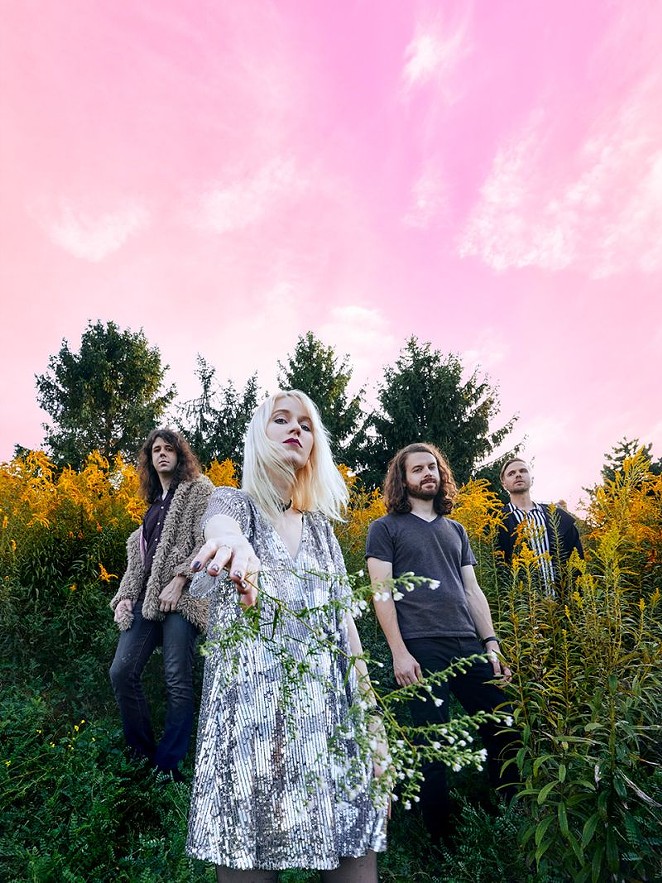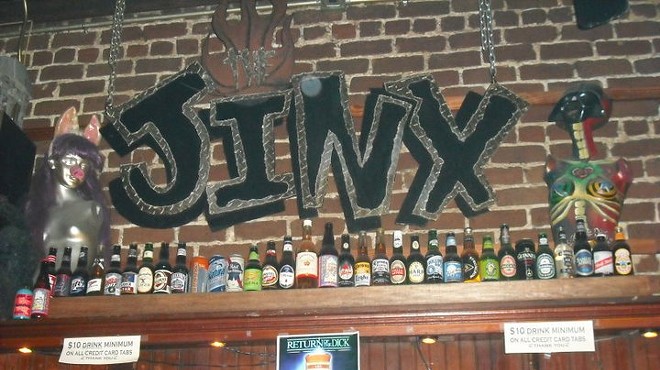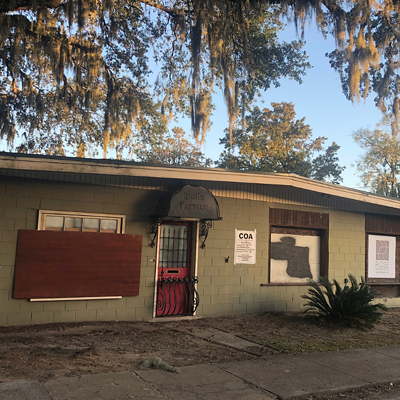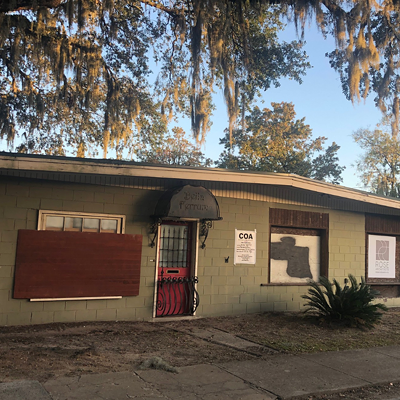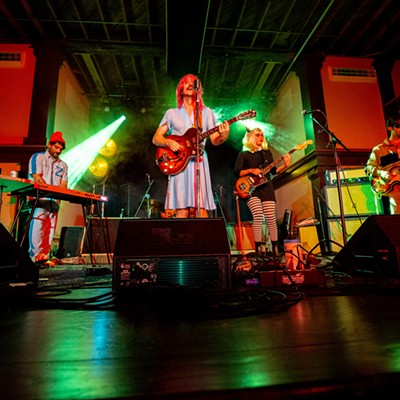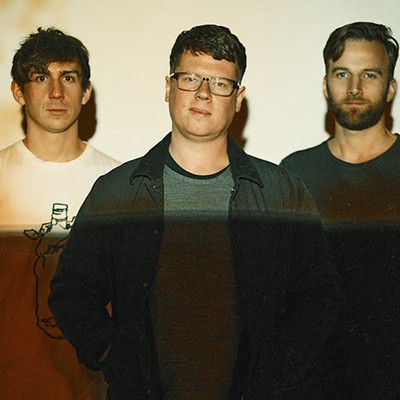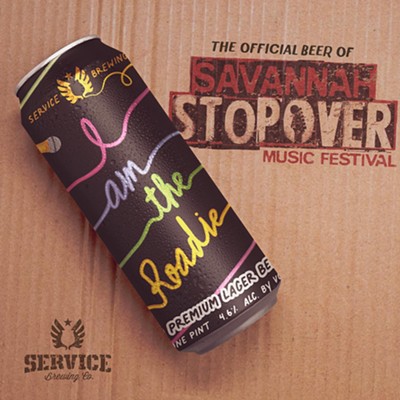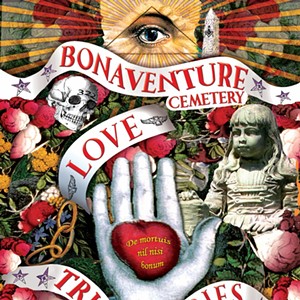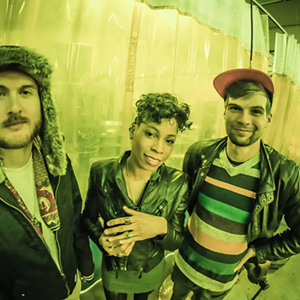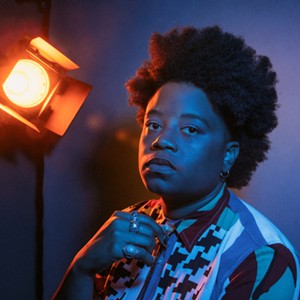Niights is a band that ticks every box for this lover of 80s and 90s dream pop and shoegaze. Upon first listen, it’s clear that they take plenty of cues from My Bloody Valentine, Slowdive, The Jesus and Mary Chain, and more alternative rock bands like Smashing Pumpkins. If you listen further, though, you’ll notice that they even explore heavier avenues and dip their collective toe into the vast pool of metal and its riff-centric explosiveness.
All of this comes together to create something that makes Niights stand out. The band clearly isn’t keen on just being a copy of their influences, but rather uses those influences as the blueprint for something sonically and compositionally unique. They’ve succeeded in that over the past several years, and most notably on their latest release Hellebores.
Niights is currently on a tour that brings them to The Jinx on Fri., July 26, alongside Tape Waves and local favorites Nancy Druid. We spoke to guitarists and vocalists Frankie Maraldo and Jenna Fournier ahead of the gig.
You don’t lean too heavily into one influence or another—it’s a really delicate balance of stylistic approaches and aesthetic choices in terms of production. It’s also really varied musically.
Maraldo: Yeah. It’s hard for us to repeat ourselves, because we make a conscious effort not to do it.
That said, was this band one of those instances where you knew all along what it should be?
Fournier: When we started the band, I had a bunch of songs written that were in a bare bones, sort of singer/songwriter situation. Frank took those and added a bunch of guitar layers and stuff, and it grew from there. We started the band in 2010, so when we first started writing together it was a little bit of a different kind of collaboration because I joined with songs already written.
Now, we do write in a more collaborative way. But we’re not really going for anything other than kind of experimenting together. And we both pull from different backgrounds, so I think that’s why the music comes out sort of all over the place sometimes.
Maraldo: When I started, I had an idea of what I wanted it to sound like. But since then, we’ve been trying to push further and further to see what we’re really capable of doing. Back in 2010, the shoegaze revival was barely a thing—if it was a thing at all, at that point.
Side note, but I think the last Slowdive record might be the best “comeback” record ever.
Fournier: Yeah, it’s so beautiful.
That whole revival thing must make it a really good time to be doing what you guys are doing. But I also understand the desire as a band to experiment and not repeat yourselves. In what ways do y’all experiment and push boundaries?
Fournier: For me, it’s sometimes playing with new pedals. But really, it’s sitting down and writing something that’s maybe more formless and trying to create from that. Or maybe breaking away from a common structure go-to. I know that Frank challenges himself by learning different guitar styles. I never thought we’d ever shift into metal, but there’s a lot to learn from that and I think Frank has been incorporating that into his style.
Maraldo: I usually have a pretty formed structure in terms of what I want something to sound like. I don’t mean songwriting, per say, but sonically I have a pretty formed idea when I start with stuff. Obviously there’s lots of branches that go off of that, and that’s the fun of it. But in the studio, I know which way I want to go and which ways I don’t want to retread.
It’s a great question because it’s hard for me to think about that. But Jenna did bring to light something that I didn’t even realize I do—I tend to try and learn a new chord or technique; something to move things along. I do tend to have a lot of things pre-written in my head, and then it’s a matter of getting it out through the instrument. Usually, my ideas are beyond my ability at first, which is what’s fun about music for me. Pushing the physical limitations of the band myself, basically.
Fournier: We were also a really fortunate band in that we worked with a producer who let us be ourselves, basically. He let us mess around and let us experiment in the studio. You don’t always have the time and money to do that, and he gave us a lot of extra time to experiment in the studio. That gives you a whole other world of possibilities.
That’s a real gift, I think. Especially when you’re just entering the studio realm, it’s hard to let your guard down with producers, and it’s not always the case where producers feel comfortable relinquishing some of that control.
Maraldo: It was definitely that way early on, but we spent a lot of time with Jim [Wirt, producer] in a way that was not recording. Doing a remix on the first record, and then when we started the record with him it was in piecemeal. So we’d already had our ins and outs with him at that point, and he’d become a friend. He came along and started realizing that this wasn’t another band where he had to play timekeeper. He knew when to say, “Let’s go down the rabbit hole a little bit.”

